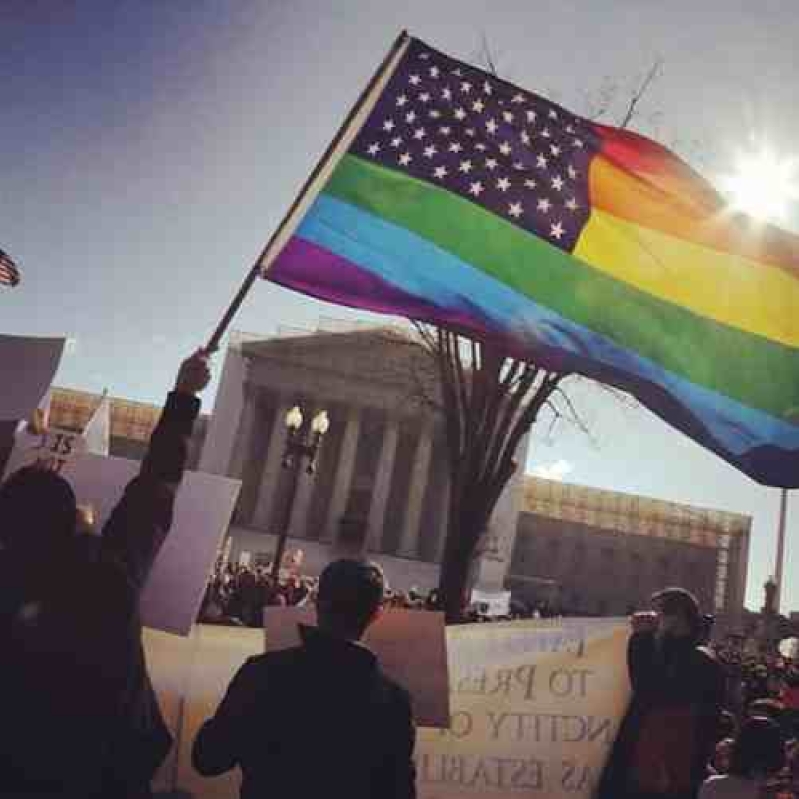
On Monday, the Supreme Court announced its declination to hear the case of a New Mexico photographer who believes she was within her rights when she refused to work at a same-sex ceremony.
The case involves Elaine Huguenin and her husband Jonathan, whose Albuquerque photo studio informed Vanessa Willock and Misti Collinsworth in 2006 that it only worked "traditional weddings."
The Supreme Court's refusal to hear the case sends a foreboding message to Americans who oppose gay marriage, stated Jordan Lorence, an Alliance Defending Freedom attorney who represents the Huguenins.
"It is disconcerting because the (state) decision was so harsh that this small company can now be forced by state anti-discrimination laws to create messages that they don't agree with," he told Fox News. "This new authoritarianism - forcing people to bow the knee to a new orthodoxy or they be punished - is very chilling."
The case would have addressed a constitutional question with potentially significant implications: will business owners soon be forced to serve customers even when it conflicts with their religious beliefs.
Upon receiving an email from Vanessa Willock to photograph her and her partner's "commitment ceremony," Huguenin declined because the event would gone against her religious convictions that marriage should be between a man and a woman.
While Willock and Collinsworth quickly found another photographer, they filed a complaint to the New Mexico Human Rights Commission. The photographer was charged with violating the state's anti-discrimination law, which requires businesses to serve customers and clients without regard to their race, religion or sexual orientation.
The resulting legal battle became one of the first major cases to investigate the battle between gay rights and the First Amendment rights of business owners.
The Huguenins' petitioned the Supreme Court to hear their case, which was based on their right to freedom of speech.
"Of particular relevance here is the Huguenins' sincere religious belief that marriage is the union of a man and a woman," their petition said. "They believe that if they were to communicate a contrary message about marriage - by, for example, telling the story of a polygamous wedding ceremony - they would be disobeying God."
However, as one New Mexico justice stated, the Huguenins "are compelled by law to compromise the very religious beliefs that inspire their lives."
The state's decision that the Huguenins violate their personal convictions and photograph the ceremony is "the price of citizenship," another justice wrote.
Lorence believes the government is overstepping their bounds. "When people say things like gay rights trump religious rights, what they are saying is the government can force people to believe a certain way - and that is something that in a free society should not be tolerated," he said.
Rep. Randy Forbes says every American should be troubled by the Supreme Court's apathy.
"The ability to speak freely and live according to our beliefs is the prize, not the price, of citizenship," the congressman said. "And we all have a stake in protecting it."
The Family Research Council (FRC) also voiced dismay regarding the U.S. Supreme Court's refusal to hear the case.
"The Supreme Court ignored an opportunity to reaffirm the basic principle that the government may not trample on fundamental rights of free speech and the free exercise of religion," said Tony Perkins, president of FRC. "These rights do not stop at the exit door of your local church, and instead extend to every area of a religious person's life."







